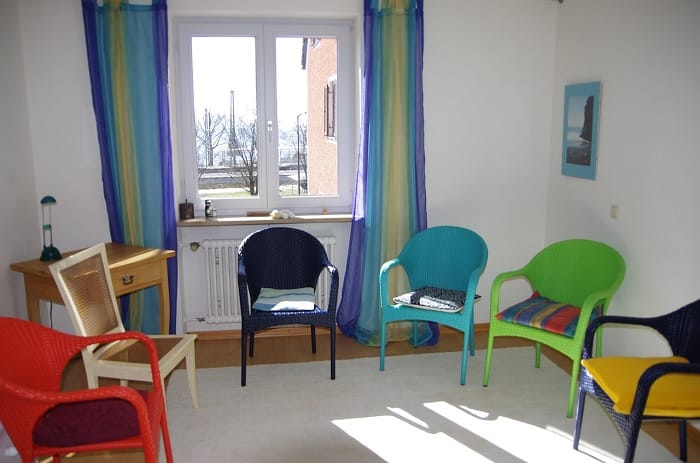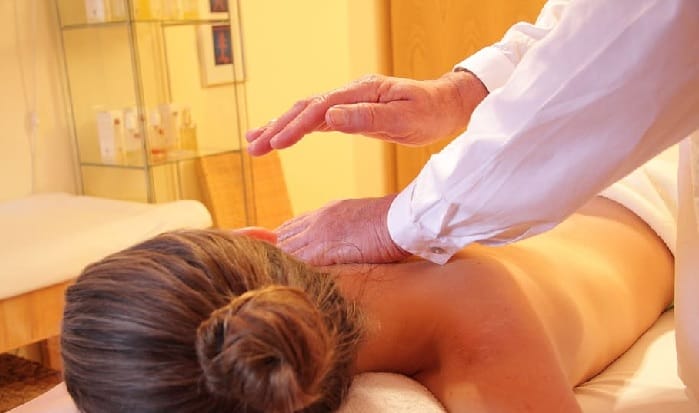Rehab 4 Addiction offers links to a range of different drug and alcohol rehabs in Somerset.
This varies from outpatient rehab, residential rehab and home detox treatment options [1] for drug addiction, alcoholism and other forms of substance misuse. [2]
The majority of drug and alcohol rehab treatment providers we work with in Somerset offer treatment on a self-funded basis, although we also offer a number of statutory options.
For more information on drug and alcohol rehab in Somerset and near Somerset, contact Rehab 4 Addiction today on 0800 140 4690.
Rehab 4 Addiction offers a variety of drug and alcohol rehabs in South West England, including Dorset, Somerset, Devon, Cornwall, Gloucestershire, Wiltshire, and Bristol.
You can get help at a drug or alcohol rehabilitation across North East Somerset, West Somerset, and South Somerset for a huge variety of addictions.
Get the help you need to beat addiction at a drug and alcohol rehab in Somerset – call our team on 0800 140 4690

An intervention is when a family member, friend, colleague or loved one forms a plan to help an individual get the professional rehab support they need for their addiction.
In its simplest form, an intervention is when loved ones hold a meeting in a calm, comforting and caring environment with the individual suffering from addiction to highlight the problem and discuss rehab treatment options.
If your friend or loved one is refusing treatment for their addiction, then an intervention can be a great way of highlighting their destructive behaviour and its consequences, as well as outlining the rehab options available to them.
By holding an intervention, also gives you time to formulate a drug and alcohol rehab treatment plan [3] for the individual.
It’s also always a great idea to inform an intervention team in Somerset of your plan so that they can ensure that a professional rehab and addiction interventionist can be present.
By being present at the intervention, the specialist will also be able to ensure that the conversation stays on the right track.
It will also ensure that all drug and alcohol rehab treatment options in Somerset [4] which are suggested to the individual are appropriate and discussed in a calm and measured way.
Community Reinforce And Family Training (CRAFT) is a fantastic way for family members and loved ones of someone suffering from an addiction to learn about how to hold an intervention in the right way and guide them towards rehab treatment more gently.
For guidance conducting an intervention in order to convince a loved one to access treatment at a drug and alcohol rehab in Somerset, call our team on 0800 140 4690

The cost of drug and alcohol rehab in Somerset or near Somerset depends on a number of factors including which type of centre you choose, how long you stay there and what type of room you decide to opt for.
Thankfully, there are lots of different rehab options in Somerset for different budgets.
For example, to stay in a rehab centre for 10 days (in a private, single room) then the price could cost anywhere between £3,000 and £6,000.
However, if you chose to stay in a shared room with another individual then the price is cheaper, at around £2,000 – £4,000.
However, if you choose to stay in rehab for a total of 28 days, then the cost is closer to £8,000 – £12,000 (for a single room) and £6,000 (for a shared room).
Some people may decide that they want to attempt a home detox, which is often cheaper than full rehab.
Whilst they do work for some people, it’s important to remember that you won’t have access to the same support and help as you would at residential rehab.
Home detoxes in Somerset and near Somerset will usually cost approximately £1,500.
Below, we list several drug and alcohol rehabs in Somerset:

It’s important to understand that there isn’t a solely NHS-run drug and alcohol rehab in Somerset and the rest of the UK.
Private rehab centres contain reserved spaces for individuals who are attending for NHS-funded treatment.
However, the funding the NHS receives for drug and alcohol rehab is very limited these days.
This has had a huge effect on the private centres that have previously relied on NHS-funded patients using their alcohol rehab facilities.
Somerset rehabs such as Whitecross House [5] and Broadway Lodge [6] may be able to offer council-funded treatment, however the application process is known to be lengthy and funding may ultimately be withheld.
You can learn more about drug and alcohol rehab treatment in Somerset via the NHS here. [7]
To learn more about your choices for addiction treatment at drug and alcohol rehab in Somerset, give our team a call on 0800 140 4690

Below, we list organisations offering state-funded addiction treatment and rehab support in Somerset:
Address: Unity House, 10 Canon St, Taunton TA1 1SN
Telephone: 03003 038 788
Website: https://www.turning-point.co.uk/services/sdas
Address: 37 Totterdown Ln, Weston-super-Mare BS24 9NN
Telephone: 01934 812 319
Website: https://www.broadwaylodge.org.uk/
Address: Wellsprings Rd, Taunton TA2 7PQ
Telephone: 01823 368 368
Website: https://www.somersetft.nhs.uk/camhs/
Address: 35 Boulevard, Weston-super-Mare BS23 1PE
Telephone: 01934 427 940
Website: https://www.wearewithyou.org.uk/services/north-somerset/

There are a number of pros and cons to attending private or NHS-funded drug and alcohol rehab, which we will detail now.
For more guidance choosing between private and NHS-funded treatment in Somerset, give our team a call on 0800 140 4690

Everyone’s experience at rehab is different, and there is not one single length of treatment that fits all.
Nevertheless, it is suggested that if you are able to stay at a drug and alcohol rehab in Somerset for a substantial period of time, then you’re more likely to overcome your addiction.
In general terms, most people stay at a rehab centre for a total of 28 – 90 days, which also shows to be most effective.
However, this does differ a lot depending on the specific substance the individual is addicted to and the rehab centre they attend.
By staying at the rehab centre for an extended period of time like this, you will be given the opportunity to receive in-depth therapy and focus on your long-term recovery by receiving relapse prevention therapy.
It is advised that individuals stay in rehab for a minimum of 7 days.
For a more accurate answer to how long your time at a drug and alcohol rehab in Somerset will take, call our team today on 0800 140 4690

It is important to understand that anyone who enters a rehab centre in Somerset with an alcohol use disorder will be expected to complete a full alcohol detox and alcohol rehab programme.
Unfortunately, this also means going through unpleasant and harsh alcohol withdrawal symptoms whilst at rehab.
These withdrawal symptoms typically include:
As you can gather, experiencing these symptoms is very challenging for someone who’s already vulnerable, possibly even deadly, and make the rehab recovery process much more difficult.
That’s why it’s best to undergo your detox in a safe, controlled and calm environment at rehab.
By providing around-the-clock care, you’ll feel confident in the knowledge that you’re going to overcome your withdrawal symptoms and rid your body of the toxic substance whilst in the security of a professional rehab centre.
Drug and alcohol rehab professionals will be able to provide you with both physical and psychological help.
One popular way rehab is able to provide help and support medically is by using medications like Librium, a benzodiazepine-based detox medication often used to help calm and sedate individuals.
Once the alcohol detox phase is complete, it’s advised that individuals stay in a Somerset rehab for a longer period of time.
Now that the body is rid of the addictive substance, the patient will spend the rest of their time at rehab acknowledging, identifying and dealing with their triggers.
It’s highly important that individuals dedicate time to identifying these triggers so that once they leave rehab, they will be able to form coping strategies to avoid and overcome them.
Get the help you need from an alcohol rehab in Somerset today by calling us on 0800 140 4690

For some individuals, the idea of inpatient alcohol rehab and detox in Somerset is just too much.
Almost every drug and alcohol rehab in Somerset will offer an ‘at-home’ detox programme.
It’s important to understand that you will still receive medical help under this form of rehab treatment.
In order to qualify for an at-home detox programme, you must be drinking less than 30 units per day. [9]
Medication such as Librium, Naltrexone, Acamprosate and various alternatives will be posted to you at home instead of prescribed and distributed at rehab.
You will be closely monitored and assessed by healthcare professionals and rehab support staff every day over the phone.
An at-home detox is a great option for those struggling to afford alcohol detox at an inpatient rehab, as it is considerably cheaper.
However, it is important to note that it is not as safe or successful as a detox programme in an alcohol rehab centre.
However, it is a great option for those who already have support at home or for those who are deemed low-risk, or who find that residential rehab is too intense or time-consuming.
If you think you may need the help of an alcohol rehab in Somerset, reach out to our expert team on 0800 140 4690

Cocaine is one of the most highly addictive drugs there is and is often treated at rehabs in the UK.
It is extremely hard to feel pleasure without consuming the drug once you start taking it, and it chemically changes the way your brain perceives pleasure.
Addiction to cocaine often results in many psychological symptoms that require rehab treatment.
However, unlike alcohol and drugs such as heroin, there are no physical withdrawal symptoms experienced when you stop consuming and abusing cocaine at rehab.
Cocaine detox will not be necessary, so instead attending rehab for cocaine will mean that a lot of attention is put on your psychological rehabilitation and state of mind.
Beat your addiction to cocaine with the help of a drug and alcohol rehab in Somerset – call us on 0800 140 4690

Like cocaine, heroin is highly addictive.
However, unlike cocaine and more like alcohol, abusing heroin can cause serious harm to your mental and physical health.
Therefore, it’s important to undergo a detox from heroin before pursuing any other forms of rehab treatment.
This way any heroin withdrawal symptoms will be treated in a safe and controlled rehab environment.
After undergoing your detoxification and rehab programme, you will then need to undergo therapy in order to break the psychological dependence you have developed on heroin and ensure that you do not relapse again after rehab has concluded.
Beat your addiction to heroin with the help of a drug and alcohol rehab in Somerset – call us on 0800 140 4690

Despite an increasingly large number of people using cannabis in a recreational sense, cannabis use does lead to negative consequences that often require proper rehab to help.
Cannabis abuse can lead to one feeling paranoid and anxious, as well as experiencing depression, immune issues, respiratory issues and a general dissatisfaction with life.
Similar to cocaine, cannabis is not physically addictive in that your body will not crave the drug – it is purely psychological, which has a significant effect on the form of cannabis rehab.
Therefore, it is not necessary to undergo a detox from cannabis whilst at rehab, but you will be required to undergo rehab treatment in the form of therapy.
Beat your addiction to cannabis with the help of a drug and alcohol rehab in Somerset – call us on 0800 140 4690

In today’s world, there are a large number of different types of therapies offered at most drug and alcohol rehab centres in Somerset.
These rehab treatment options include, but are not limited to:
Experience these therapies and more at a drug and alcohol rehab in Somerset by giving our team a call on 0800 140 4690

At a drug and alcohol rehab centre in Somerset, individuals will also receive treatment for a dual diagnosis.
A dual diagnosis is when an individual who is already suffering from a substance use disorder is also suffering from other mental health disorders which need to be addressed whilst at rehab. [10]
These disorders include paranoia, schizophrenia, depression, bipolar disorder, anxiety and many more frequently diagnosed in rehab patients.
For those individuals suffering from a dual diagnosis, their recovery and rehab treatment will require more attention than those without [11].
In terms of treating mental health issues, structured interviews with mental health professionals have proven to be the most effective, which is something that a first-rate rehab in Somerset can provide.
Ensure that your time at a drug and alcohol rehab in Somerset comes with sufficient dual diagnosis support by giving our team a call on 0800 140 4690

Whilst at rehab in Somerset, individuals will work with addiciton experts to create a tailored relapse prevention plan designed to give them the best chance of avoiding relapse.
This is essential, particularly immediately following rehab which is largely considered the most dangerous time for relapse.
This is because addiction is fundamentally something that cannot be fixed through rehab, only ever managed. [12]
Your relapse prevention plan will detail your unique addiction triggers, the coping mechanisms you have developed at rehab to resist them, the contact details of several people or organisations you can contact in a crisis, and an action plan in case you do relapse.
All of this will help you to stay sober in the long term and increase your chances of leaving addiction behind for good once you leave rehab.
Beat addiction once and for all at a drug and alcohol rehab in Somerset by giving us a call on 0800 140 4690

For those individuals who are unable or unwilling to attend rehab in Somerset, there are several other options available.
These range from further rehab treatment to mutual support groups that help to provide social support and encouragement to those who might otherwise feel isolated.
Such residential rehab alternatives or options for post-rehab support include:
Whatever help you need to beat addiction, allow our rehab and addiction experts to help by calling us on 0800 140 4690

Fed up with your drug or alcohol use? Ready to regain control of your life from the jaws of addiction? Need the help of a professional rehab.
If so, contact Rehab 4 Addiction today on 0800 140 4690.
Receive instant rehab treatment in as little as an hour following your initial call.
All of our partner drug and alcohol rehab clinics in Somerset are CQC inspected. [19]
If you’re living in Somerset or near Somerset, get help now and start your recovery journey in Glastonbury, Yeovil, Taunton, Minehead, Frome, Burnham-on-Sea, Dunster, Bridgwater, Cheddar, Dulverton, Shepton Mallet, Watchet, Porlock, Brean, Wookey Hole, Crewkerne, Chard, Ilminster, Langport, Bruton, Somerton, Castle Cary and Porlock Weir.
This article was written by Boris Mackey. You can connect with Boris online at LinkedIn or X.com.
[2] https://nida.nih.gov/publications/drugs-brains-behavior-science-addiction/drug-misuse-addiction
[3] https://www.ncbi.nlm.nih.gov/books/NBK385382/
[5] https://westerncounselling.com
[6] https://www.broadwaylodge.org.uk/
[7] https://www.nhs.uk/live-well/addiction-support/drug-addiction-getting-help/
[8] https://www.rcpsych.ac.uk/news-and-features/latest-news/detail/2020/10/06/
[9] https://www.niaaa.nih.gov/alcohol-health/overview-alcohol-consumption/moderate-binge-drinking
[10] https://pmc.ncbi.nlm.nih.gov/articles/PMC6761825/
[11] https://www.ncbi.nlm.nih.gov/pmc/articles/PMC6876494/
[12] https://nida.nih.gov/publications/drugs-brains-behavior-science-addiction/treatment-recovery
[13] https://www.alcoholics-anonymous.org.uk/intergroups/somerset-intergroup/
[14] https://meetings.ukna.org/meeting/search
[15] https://meetings.cocaineanonymous.org.uk/meetings/
[16] https://al-anonuk.org.uk/groups/taunton-monday/
[17] https://al-anonuk.org.uk/alateen/
[18] https://uk.meetings.smartrecovery.org/meetings/?location=Somerset&coordinates=50